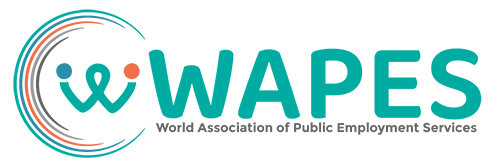Joint Project, exchanges continue in Cambodia
The National Employment Agency of Cambodia has been consulting with fellow labor market stakeholders to further advance the joint project managed by the World Association of Public Employment Services and Japan.
Recently, The National Employment Agency (NEA) successfully hosted consultation workshops in Phnom Penh and Siem Reap to gather stakeholders’ feedback on its work under the Joint Project aimed at improving its services to Cambodian employers, jobseekers and society in general. Stakeholders from the skills sectors, donors, civil society and others have actively contributed comments and suggestions which the NEA is using to fine-tune its approach.
Launched in 2019 by the Japanese Ministry of Health Labour and Welfare and the World Association of Public Employment Services (WAPES), with additional technical support from the Korean Employment Information Service (KEIS) and Australian-based service provider APM-Ingeus, the Joint Project leveraged international best practices to help the NEA develop modern performance management and customer insight tools as part of its goal to modernize and continuously improve the PES customer experience in Cambodia.
The WAPES joint project coordinator, Fumie Higashira, said “although the Covid-19 pandemic has disrupted progress, the NEA and its partners have worked hard to update and relaunch the project”. NEA officials are now making final preparations to pilot two tools: a contextualised Performance Assessment Framework (PAF) that will empower frontline offices to continuously monitor, evaluate, and improve PES services; and a user-friendly Customer Satisfaction Survey (CSS) to assess the experience of service users including employers and jobseekers. Fumie said, “listening to staff and customers will help the NEA to build a better overview of how it works and make its services more flexible, efficient and sustainable”.
The Joint Project is part of a wider initiative by WAPES in the Asia-Pacific Region to offer project-based technical support to modernize PES and to strengthen partnership among members. At a strategic level, WAPES Executive Secretary, Eve-Marie Mosseray, has highlighted the key role of PES in building strong skills and employment ecosystems in the region to drive inclusive and sustainable economic growth. The Joint Project team will meet again in the near future to review the results of the two pilots and to reflect on other activities that might support the NEA, including capacity-building, with the medium-term aim of leveraging the lessons learned to extend technical support to other PES in the region.
The Joint Project Team




